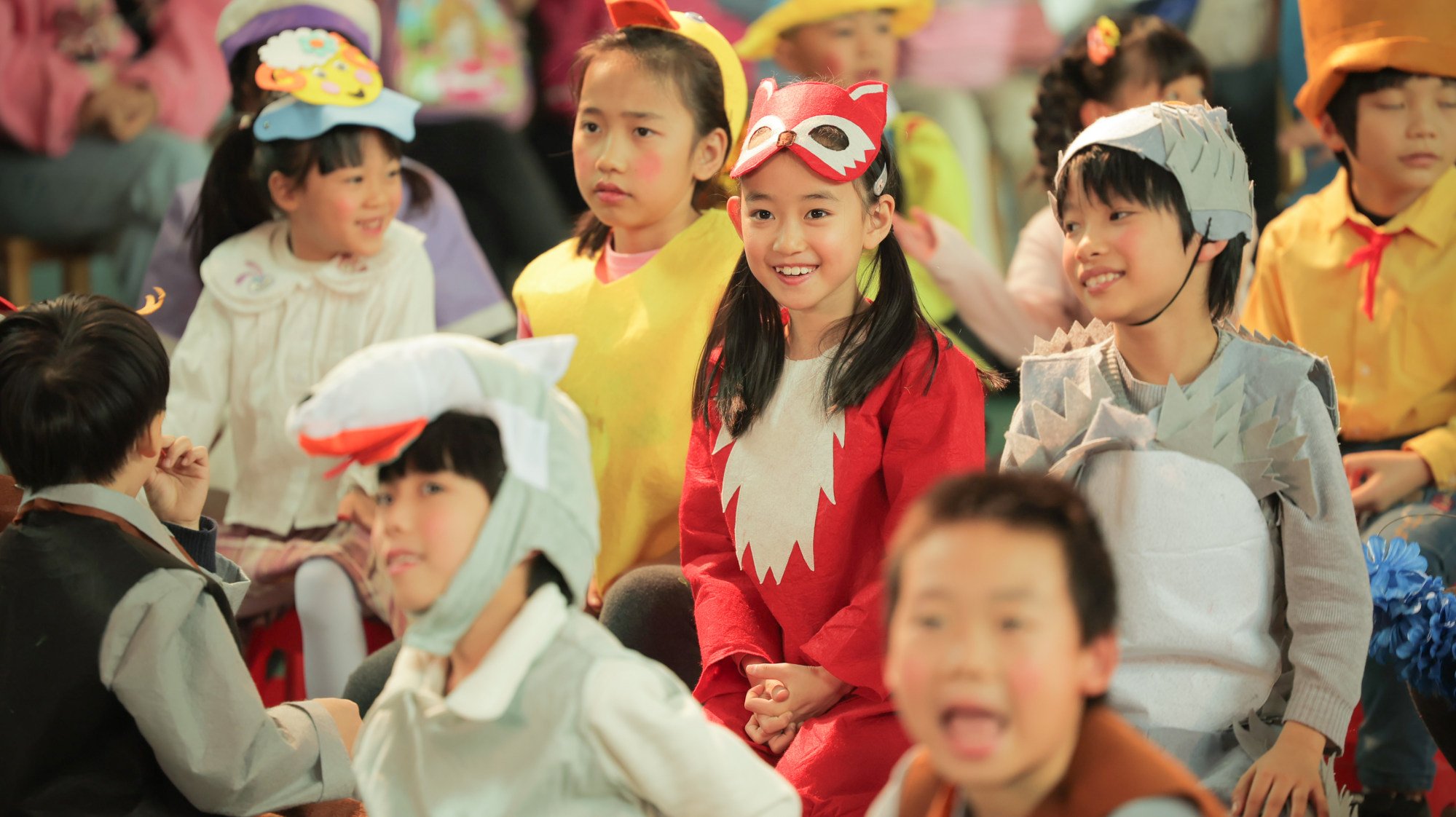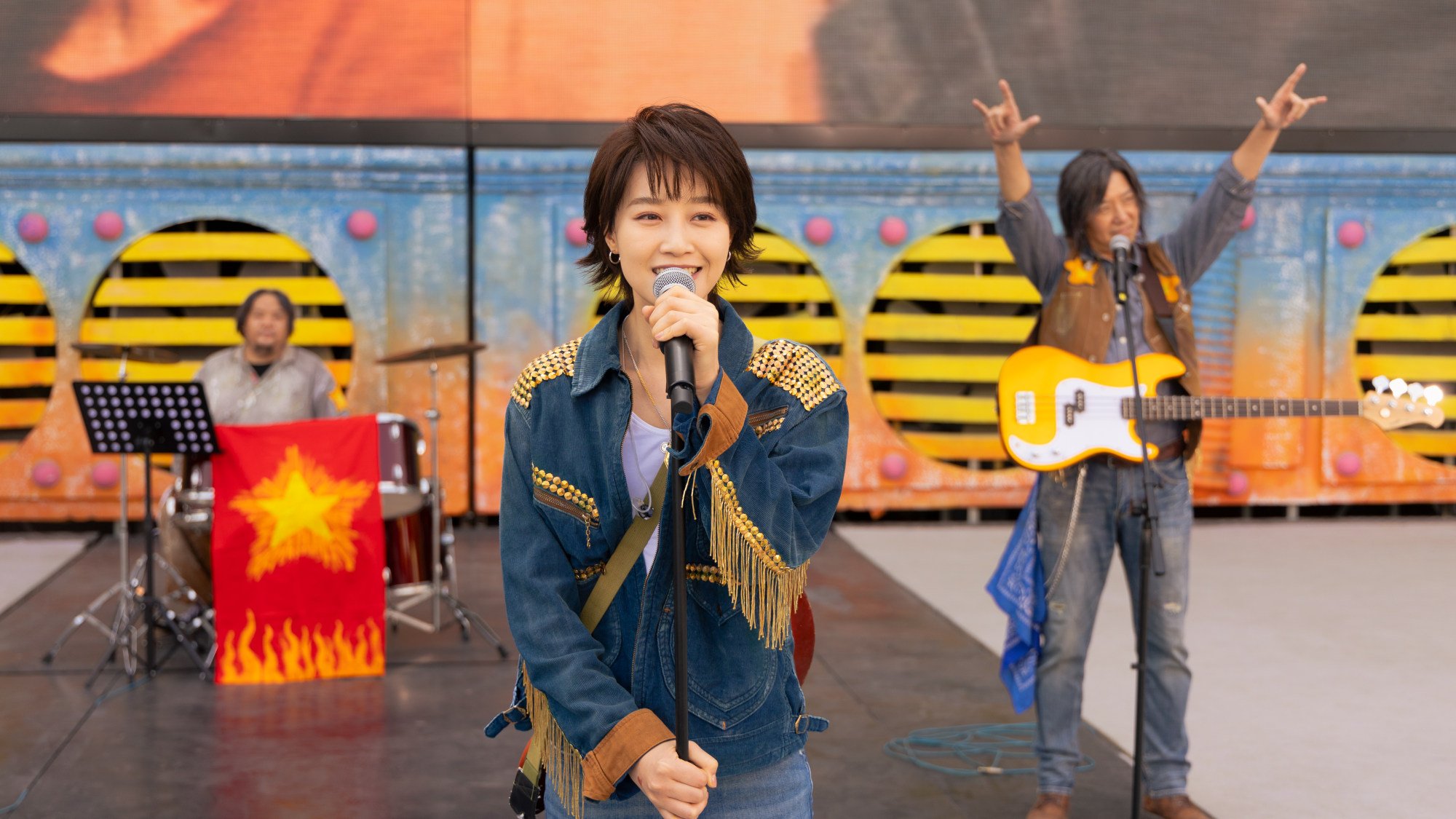
Review | Woof Woof Daddy movie review: Aaron Kwok reborn as a dog in atrocious fantasy drama
- Aaron Kwok stars as a factory worker who is also a rock star, who is killed in a traffic accident and reincarnated 24 years later as a dog
- With a story that fails to shine on any level, this cheaply made Chinese film relies on poop jokes, bad special effects and unlikeable characters
1/5 stars
Filmmakers’ relationship with dogs over the years has proved just as rewarding as other people’s bond with their loyal, four-legged companions. They have produced classic weepies (Old Yeller), thrilling adventures (The Call of the Wild), uproarious comedies (Beethoven), and countless animated favourites.
Asian cinema has supplied many memorable entries, including Hachiko and Koreyoshi Kurahara’s Antarctica, both of which inspired Hollywood remakes.
The secret to a compelling canine caper is either brilliantly trained animal performers or engaging animated characters – whatever effectively brings a dog’s personality to the fore – and showing them having meaningful relationships with human characters around them.
There is so much wrong with the film it is difficult to know where to begin. Suffice to say that, even within the fuzzy lines of its own insultingly half-baked premise, the film does not make a lick of sense.
Kwok plays single father Siwang, who moonlights as a rock star between shifts at a confectionery factory. His only fan is his nine-year-old daughter Lulu (Xing Yunjia), who is left to fend for herself when Siwang is killed in a freak accident.
Banished to the afterlife, the desperate dad rebels against his assigned fate and, 24 years later, is magically reincarnated as a puppy.

With remarkable ease he tracks down Lulu (Lyric Lan Yingying), who is a failing pop singer trapped in a loveless engagement to her sleazebag manager (Darren Wang Da-lu).
Siwang muscles his way back into Lulu’s, determined to help his daughter get back on her feet, despite being trapped in a small furry body.
Chief among Woof Woof Daddy’s many failings is its visual effects; the dog looks absolutely rotten, even for a modestly budgeted mainland Chinese quickie like this.
On the page, the film fares even worse. Siwang the dog is essentially magic: he walks on two legs, holds objects between his paws, and responds to literally anything said to him; he even plays the guitar. Yet nobody bats an eyelid.
Why Siwang does not make Lulu a millionaire simply by existing is never discussed. All director Kexin Lu Ke deems to be of value is Kwok’s immature father earning a redemptive reunion with his daughter; that, and the fact the dog lays a few scatological poop jokes along the way.

Laboured from start to finish, Woof Woof Daddy is one bad dog that deserves to go straight to the pound.

